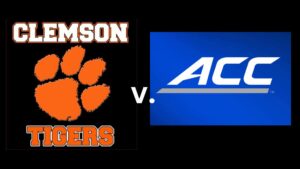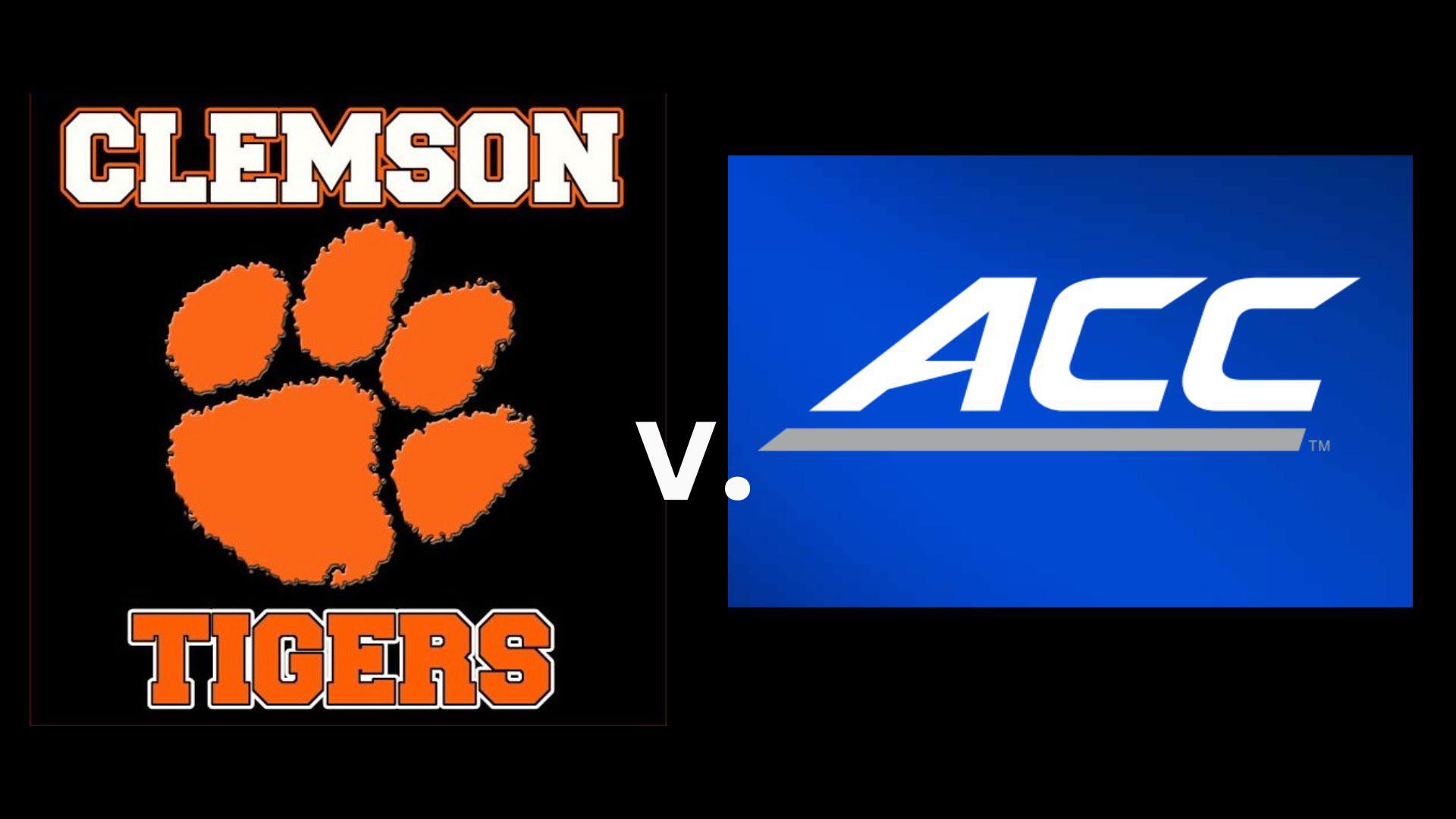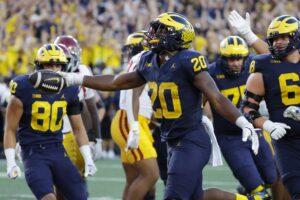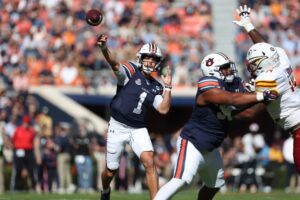A circuit court judge in Pickens County South Carolina delivered a multi-faceted verdict Friday in the matter of Clemson v. The ACC. The judge gave wins to both the ACC and Clemson. It was clear afterward that the school was happier with its end of the deal. It all but ensures the case will continue in a South Carolina courtroom, for now.
Judge Perry Gravely had already had weeks to review the written briefs from both sides. With no dramatic variation from that in the oral arguments, he delivered his verdict within 15 minutes of the end of the hearing.
A Mixed Bag
Judge Gravely denied the ACC’s motion to dismiss the case as well as its motion to abate or stay the case. Either of the latter two would delay the case indefinitely. But he also denied Clemson’s motion to be granted sovereign immunity. As a public school, if granted, it would have given Clemson state-like legal status. In addition, limited the ability for anyone to sue the school.
It was just on Wednesday of this week that North Carolina judge Louis Bledsoe III denied Clemson’s motion to dismiss the Mecklenburg County version of the countersuit with the ACC as the plaintiff. Late Thursday, Clemson filed its notice of intent to appeal that verdict to the North Carolina Supreme Court. Because that case is heard in a special business contracts court, the other steps in the appellate process can be skipped. It is unlikely that the case will get heard in the state’s high court before next Spring.
The Setting
Friday’s hearing was held in an old-style courthouse in Pickens, South Carolina. The legions of attorneys for both sides were closely huddled around counsel tables intended for two people. There were no monitors for Clemson to do its PowerPoint presentation on its oral arguments. There was only an old-fashioned pull-up screen, reminiscent of middle school science classes decades ago. Instead, the court made black and white copies with a couple handed out to the 12 media members for all to share.
ACC Deputy Commissioner Amy Yakola was in attendance as was Clemson athletic director Graham Neff.
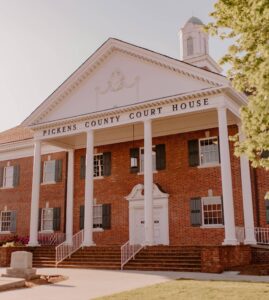
The ACC Arguments
The hearing started with the one agreement of the day. Both sides agreed to a proposed order that the contract between ESPN and the ACC would be sealed and only available to the participants of the case.
From there, the arguments took on a direction similar to the case in North Carolina, and only slightly different from the cases involving the ACC and Florida State. The arguments were about the proper jurisdiction to hear these cases.
ACC attorney James Cooney argued that the conference’s contact within the state was, “Insubstantial.” He said Clemson runs its own athletic department and its own games. He argued that the conference holding the broadcast rights to the Clemson home games is not a determining factor because the conference, “Owns the warehouse,” with the same contract with every member school.
The Grant of Rights
Cooney said the Grant of Rights turns the media rights over from the school to the conference so that the conference can execute its contract with ESPN. He added, that the schools are not a signatory on the ESPN/ACC contract. Cooney said all of the contracts, including the Grant of Rights for each school, were, “Accepted and executed,” in North Carolina, thus making that the proper venue to hear the case.
But Cooney also said the Grant of Rights does not mandate game locations. His argument was that if Clemson plays a game, a non-conference game, against Georgia on a neutral site that is up to Clemson. However, his argument did not address that the ACC does mandate and institute each school’s conference schedule, both home and away. That point went unchallenged by Clemson’s legal team.
Cooney’s point was that the broadcast rights issues are not limited to South Carolina since they are broadcast well outside the boundaries of the state. Judge Gravely asked, “But it emanates from South Carolina, doesn’t it?”
Unlike Florida State, Clemson is not trying to have the Grant of Rights ruled invalid. Clemson’s attorneys have agreed that the contract is legitimate. They are trying to get judicial declarations as to what parts of it are enforceable.
Clemson’s Response
“It is important for Clemson’s future to be in its own hands, and not the ACC’s,” said Clemson attorney Rush Smith.
He said the Grant of Rights requires performance in South Carolina, (Clemson home games). Smith argued that should subject the ACC to personal jurisdiction in South Carolina. He also repeated what has been argued in each of these cases. The GoR is for members of the ACC and does not include broadcasts of the games once a school leaves.
The goal for Clemson, and Florida State, is to be able to leave the conference, but with ownership of the broadcast rights in the respective pockets. Without those rights, the schools hold little value to any other conference.
This Could Have Been Avoided
Smith also put some of the responsibility for all of these hearings on the ACC. The Grant of Rights and the conference constitution for not have a “Choice of Law” clause. This is something that none of the lawyers have openly said yet. Last Word, however, has been saying this for two years. That would pre-determine, at the time of signature, the venue for any future or potential litigation. It is a common part of most business contracts. But the attorneys who drew up the ACC documents never included it. It would have solved all of the jurisdictional hearings before anyone ever filed a brief.
The Motion To Abate
In their final argument of the hearing, the ACC’s Cooney said with multiple cases in multiple states, the decisions should be left in the hands of one court. He said with the potential for varying decisions from different judges, it reaches the potential to have to rely on full faith and credit laws. That would also require a singular judge to make those determinations.
With it clear that the motion to dismiss was not likely to be successful, he relied on asking for the abatement or stay of the case. That would have shelved everything going forward until the jurisdiction matters before the North Carolina Supreme Court were resolved.
Judge Gravely, fully aware that could be a year from now, and joking that some judges, and maybe lawyers, will be retired by then, was not content with the idea of a sit-and-wait posture.
The Fallout
The ACC issued a statement to Last Word after the hearing. “We are pleased with the dismissal of Clemson’s sovereign immunity claim and are disappointed with the other two rulings. The ACC will continue to focus on protecting the best interests of our membership.”
Last Word reached out to Clemson for comment after the hearing. School officials were not available at the time.
With the verdict, Judge Gravely assigned Clemson’s attorneys to write the proposed order. As these processes go, it could be three to four weeks before the judge issues his final signed order. It is after that, that the ACC can file its likely appeal.
